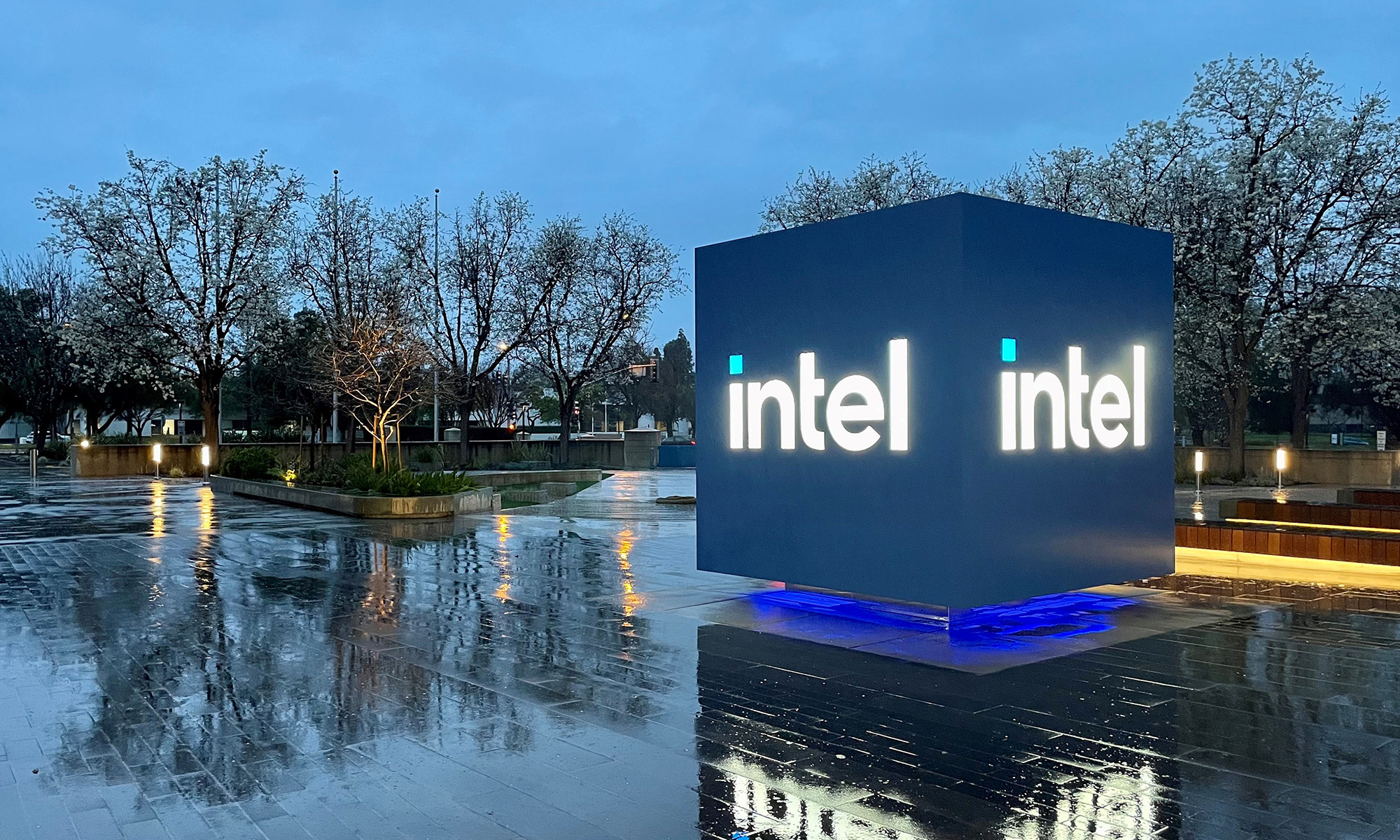
Image source: Intel.
Intel (INTC 17.15%) recently announced that it'll be working on creating a new autonomous driving platform with Mobileye and BMW. The companies have set the ambitious goal of bringing fully autonomous driving technology to fleet vehicles by 2021, and each will bring their own expertise to the project.
However, there's arguably more at stake for Intel than for Mobileye and BMW. The chipmaker is in the midst of pivoting away from its PC focus and shifting to its major revenue growth drivers, the Internet of Things (which includes driverless cars) and data centers.
Here's why Intel needs its driverless car technology strategies to pay off.
Intel needs a new revenue focus
Here's what Intel CEO Brian Krzanich said about the company's new direction back in April:
The data center and Internet of Things (IoT) businesses are Intel's primary growth engines, with memory and field programmable gate arrays (FPGAs) accelerating these opportunities -- fueling a virtuous cycle of growth for the company.
Intel said these growth businesses brought $2.2 billion in revenue growth last year and made up 40% of revenue -- and the majority of operating profit. All of this offset declines in the company's PC market segment.
Driverless cars are a segment of the IoT, and they need massive amounts of processing power to work well. Intel will supply some of the brainpower for the new Mobileye and BMW platform project, including machine learning systems, which train computers to learn new information.
This all plays well into Intel's new focus of using FPGAs in powerful cloud-computing processes, something that could compete with NVIDIA's (NVDA +1.60%) GPU-powered machine learning.
Intel brought in $651 million in IoT revenue in the first quarter of this year, an increase of 22% year over year. That was still just a fraction of the company's $13.7 billion for the quarter, but with the size of the driverless car market about to explode (see below), Intel clearly has plans to grow this.
The driverless car market is too big to pass up
Essentially, Intel can't afford to miss the shift to driverless cars. The automotive semiconductor market is expected to reach $48.78 billion by 2022. Most of this growth comes from the electrification of vehicles as well as advanced driver assistance systems (ADAS). ADAS are the bedrock of fully autonomous car technology, and the technology is expanding more each year.
The U.S. government continues to expand the requirements of ADAS, making them standard on new cars. Intel has already moved into the ADAS space with its purchase of YOGITECH a few months ago. The company is an expert in semiconductor functional safety and related standards for ADAS, which gives Intel more access to ADAS technology and expertise.
Again, Intel will face pressure from NVIDIA, which makes its Drive PX 2 platform that allows driverless cars to process data from their environment from cameras and sensors in real time. NVIDIA says it may eventually pair Drive PX 2 with its cloud-based supercomputer, DGX-1, to make its system even more powerful.
As semi-autonomous cars -- and eventually driverless cars -- emerge, Intel has a massive opportunity to power these vehicles -- if it can prove to automakers that its chips and machine learning are their best bet.
Intel needs to prove that it can successfully enter new segments
Intel isn't exactly a newcomer to the automotive market, but the company is trying to prove that it knows how to handle the driverless car market. And with Intel famously missing out on mobile, it really needs to prove to OEMs that it can adapt its technology for new markets.
Meanwhile, competition in the automotive semiconductor space continues to grow. Chipmaker NXP Semiconductors (NXPI 1.82%) earned $805 million from its automotive segment, representing 36% of its total revenue. NXP is currently the leading supplier of silicon to automakers and accounts for 14.5% of the automotive chip market.
Intel's recent partnership with BMW and Mobileye is one more opportunity for the company to prove that it can handle the fast-developing driverless car market and bring itself up to speed where other chipmakers are already dominating.
Don't count Intel out
Intel has made a series of automotive technology acquisitions over the past few years, including its recent purchase of Itseez and YOGITECH. Both of those purchases gave Intel more access to sensing and processing technology needed for driverless car technology.
I don't think Intel is worth buying solely on the basis of its driverless car plans, but driverless cars could eventually become a much larger part of the company's IoT revenue. Investors looking to add Intel to their portfolio should look more closely at the company's data center revenue, which is already far more lucrative than the IoT for Intel. Adding autonomous car technology into its business is still a key ingredient for Intel's future IoT prospects -- and the company appears to be doing everything it can to make that successful.







